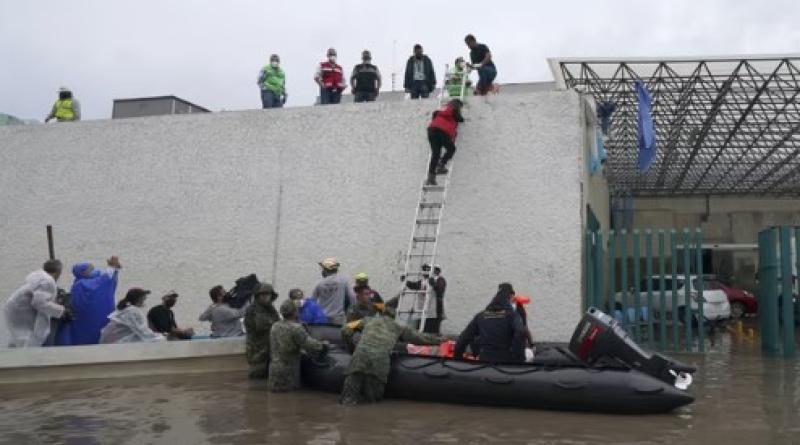Extreme weather could shut down one in 12 hospitals worldwide, report warns

Total of 16,245 hospitals at high risk by end of century unless fossil fuels phased out, analysts say
One in 12 hospitals worldwide are at risk of total or partial shutdown from extreme weather events without a rapid phase-out of fossil fuels, a new report warns.
A total of 16,245 hospitals, twice as many as are currently at high risk, will be in this category by the end of the century without a change in pace, according to a report released on Saturday by Cross Dependency Initiative (XDI), a climate risk analyst. It adds that a residential or commercial building with this level of risk would be considered uninsurable.
The report is being published before health day at the Cop28 UN climate conference, being held in Dubai. Countries will be discussing how to mitigate the health impacts of climate breakdown, which include the spread of disease and the effects of extreme weather events.
“Climate change is increasingly impacting the health of people around the world,” said Dr Karl Mallon, director of science and technology at XDI. “What happens when severe weather results in hospital shutdowns as well? Our analysis shows that without a rapid phase-out of fossil fuels, the risks to global health will be exacerbated further, as thousands of hospitals become unable to deliver services during crises.”
Although some of the hospitals can be adapted to face the effects of extreme weather events such as hurricanes, severe storms, flooding and forest fires, many will have to be moved at great expense.
As with many of the impacts of climate breakdown, this will mostly affect lower- and middle-income countries, where 71% (11,512) of the hospitals at risk by the end of the century are located. Currently, south-east Asia has the highest percentage of hospitals at high risk of damage from extreme weather events. It faces risks in the future too – with high emissions, almost one in five hospitals (18.4%) in the region could totally or partially shut down by the end of the century.
Prof Nick Watts, director of the Centre for Sustainable Medicine at the National University of Singapore, said: “It is clear that climate change threatens to undermine the stability of the health systems our patients and communities depend on. Whether it results in the closing of health facilities, or a clinic becoming overwhelmed with rising burdens of disease, the human consequences are dire.”
XDI has released the locations and names of all hospitals at risk and is urging governments to check hospitals in their region to protect them.
“Governments have a duty to populations to ensure the ongoing delivery of critical services. For individual governments not to take action on this information, or for the global community not to support governments in need, is blatant disregard for the wellbeing of their citizens,” said Mallon.





